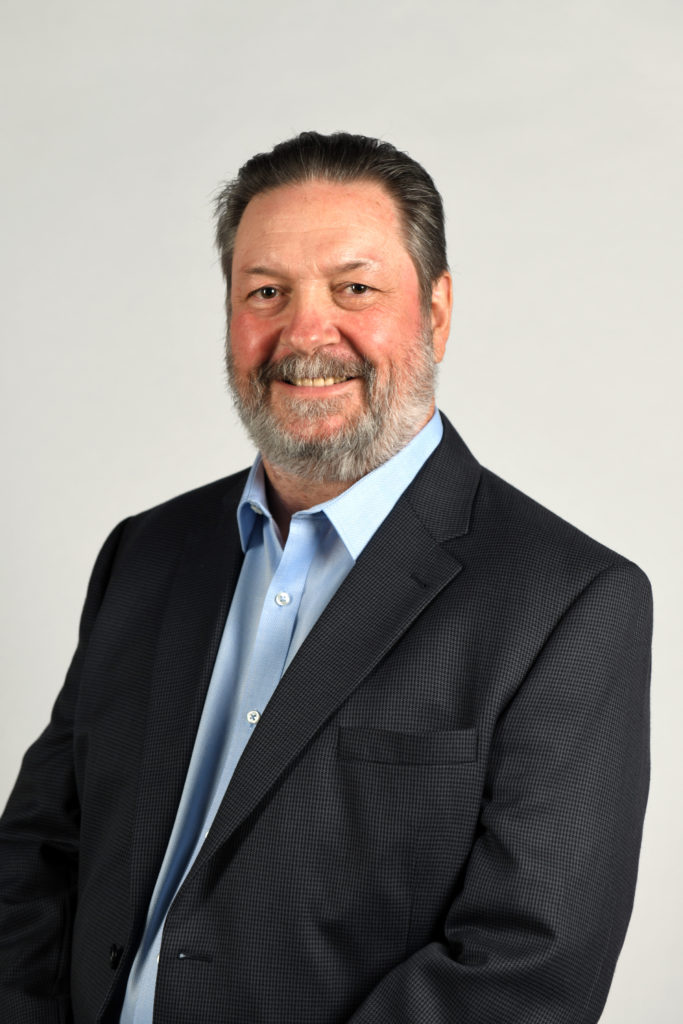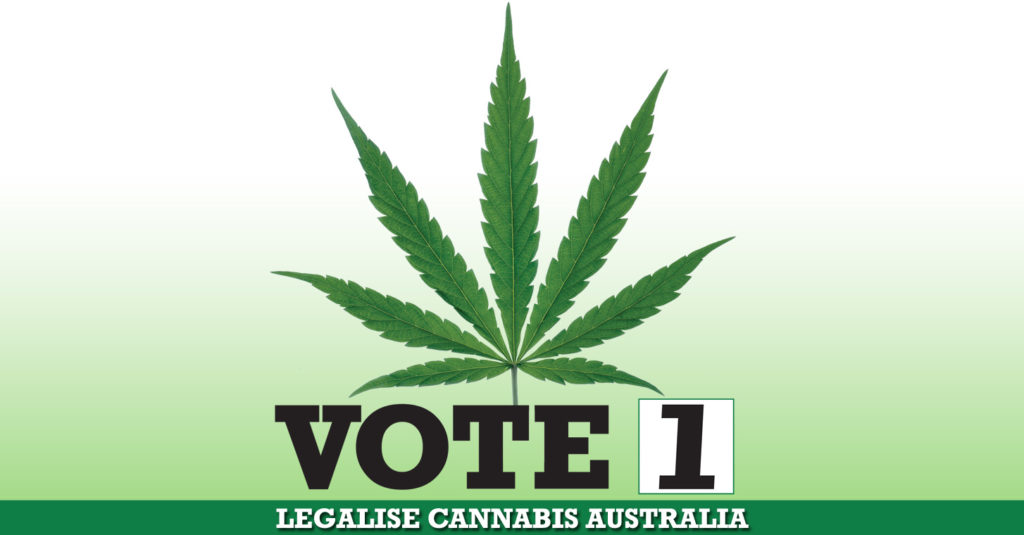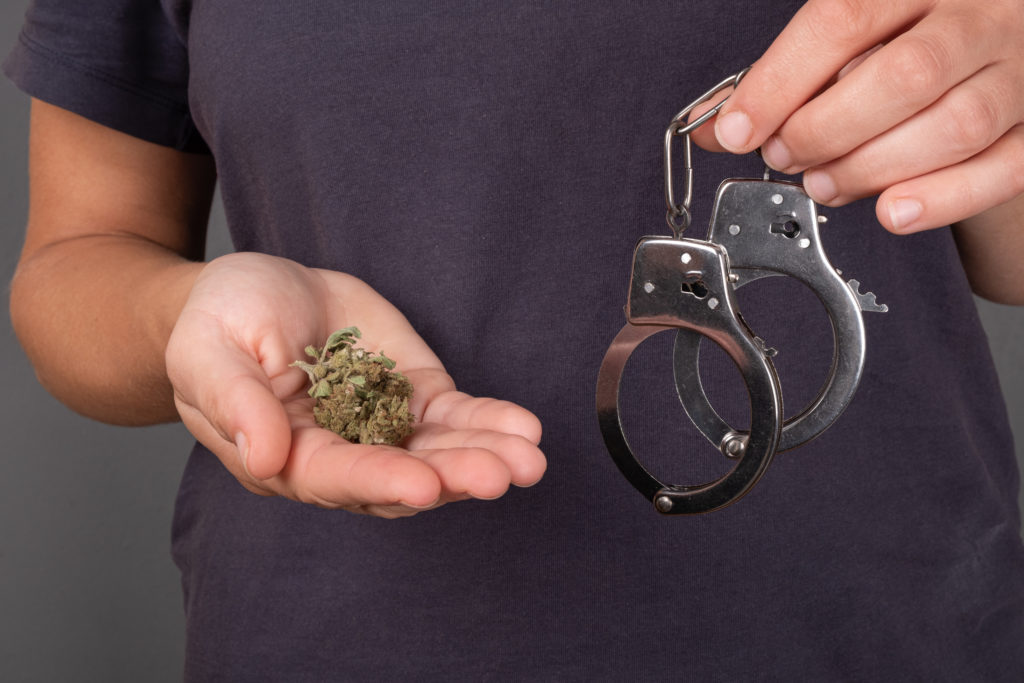Legalise Cannabis Australia’s stunning result in the recent federal election was built on strong support from the regions – and preference votes from some unlikely quarters. Cannabiz spoke to campaign advisor Craig Ellis to bust a few myths about the cannabis vote.
EXCLUSIVE: An analysis of voting patterns in May’s federal election has revealed Legalise Cannabis Australia (LCA) performed particularly strongly in regional areas, while picking up Senate preferences from across the political spectrum.

The figures refute claims that the party simply cannibalised votes from the Greens and reveal LCA’s message also appealed to voters whose first preference was for right-wing parties including One Nation, United Australia and the Shooters, Fishers and Farmers Party.
LCA performed particularly well in Queensland, where it increased its primary vote by 3% compared to 2019 when it ran as the HEMP Party. Meanwhile, One Nation’s vote fell by the same figure, suggesting that was where most of the uptick came from.
But Legalise Cannabis NSW chairman and LCA campaign advisor Craig Ellis told Cannabiz it was “too simplistic” just to look at the primary vote in determining where the party was picking up support.
“It doesn’t necessarily mean that 3% of those [One Nation] votes have gone directly in our direction of course. First preferences don’t tell the full story, you have to look at preference flows.”
While the party’s candidate Bernie Bradley received 161,000, or 5.37% of primary votes in Queensland, by the time he was eliminated – having run One Nation close for the sixth and final Senate seat – his share had risen to 7.65% (230,000 votes), picking up preferences from left and right.
Ellis said: “The vote for cannabis is unique. Unlike just about any other minor party in the country, it comes from across the political spectrum.
“Country people are voting for cannabis, libertarians are voting for cannabis, left wingers are voting for cannabis. The biggest myth is the Greens or people from the left thinking cannabis is just taking votes from them – that’s not what’s happening. One Nation is losing more votes to cannabis than the Greens.”
To reinforce that point, in New South Wales, the Greens’ primary vote went up from 8.7% in 2019 to 11.5% in 2022, while LCA’s only climbed from 2.1% to 2.5%.
But the preference picture was more impressive, with LCA president Michael Balderstone’s primary vote of 125,000 increasing to 265,000 before he was knocked out of the Senate race with only the Liberal/National and One Nation candidates still standing.

According to Australian Electoral Commission data, when the Shooters Party got knocked out, over 25% of their preferences (27,768 votes) went to LCA, more than any other party left in the count.
“It’s more than doubled with preferences,” said Ellis. “Legalise Cannabis is still in the count until the very end and it isn’t until it is eliminated that the last Senate seat is decided.”
He said preference flows showed it was “demonstrably false” that the party had mostly taken votes from the Greens.
But while LCA’s increased vote share nationwide grabbed the headlines, its strong showing in regional areas was the real story of the election, according to Ellis.
In Queensland, it picked up more than 9% of primary votes in Capricornia, 8% in Flynn and Dawson and 7% in Kennedy.
It also performed well in regional NSW, with around 4% of the primary vote in New England, Parkes, Hunter, Paterson and Riverina, and in Victoria, with more than 4% in Mallee and nearly 5% in Gippsland.

Ellis said he had expected LCA to do well in Western Australia, with its two Legalise Cannabis MPs at the state level, but was still surprised to see it pick up more than 5% of vote in the large rural seat of Durack.
Describing those as “seriously good numbers for a minor party”, Ellis attributed its strong performance in the regions to anger over drug-driving laws.
He said: “The results we have seen from regional Australia aren’t a surprise. It’s a recognition of the economic benefits of legalising cannabis, but also how badly affected country people are with the outrageous and discriminatory roadside drug-testing regime. People who aren’t impaired are losing their licences in the country and, in many cases, their livelihoods.”
The two outliers were South Australia, with only 2.3% of the primary vote, and the ACT, with 1.6%. In both cases, the party’s candidates were excluded quite early in the count, providing an opportunity to see where their preferences went.
In the ACT, that support went largely to progressive Senate candidates, with the Greens picking up 29%, David Pocock 25% and Kim For Canberra 10%. Parties to the right fared less well, with United Australia getting 17% and the Liberals 14%.
But South Australia was more typical of the national picture, with LCA preferences going in both directions – 31% to the Greens and 27% split between One Nation and United Australia.
Some commentators have attributed LCA’s performance to voter dissatisfaction with the mainstream parties rather than any great enthusiasm for its policies, but Ellis dismissed the idea of a protest vote.
He said: “There’s two types of protest, right? There’s the vote for just about anyone other than the majors. And then there’s those saying ‘I’m going to vote to protest against the fact that cannabis is illegal’.
“The vote for cannabis is unique. Unlike just about any other minor party in the country, it comes from across the political spectrum.”
LCA’s Craig Ellis
“There would be a proportion of people that voted for LCA as a ‘f**k you’ vote, but even that has some nuance. Because if you’re looking along that long Senate ballot paper, you’ve got One Nation, you’ve got Legalise Cannabis, you’ve got the Shooters. You’ve still got to make a decision.”
Ellis said the rise of the ‘teal’ independents showed how LCA could win support from disaffected Liberal voters.
“The modern Liberal party has gone too far to the right. Progressive, small ‘l’ Liberal voters can’t bring themselves to vote for that party anymore and this is why we are seeing the rise of the independents.
“It’s a matter of us framing the conversation in such a way that we can grab their votes.
“Anecdotally, I know a lot of people who voted for Legalise Cannabis in this election not because they’re consumers themselves, but because they don’t want to see their kids end up with a criminal record for smoking a joint. Or they’ve heard about people who have lost their driving licence.
“They’ve never smoked cannabis in their life, but they say ‘it’s time’.
“They’re also seeing what’s happening overseas. They’re seeing Colorado making tens of millions of dollars in taxes and, as a country, we’re leaving that sitting on the table.

“As we are seeing across the world, the recreational market is the next step after medicinal. Legalise cannabis parties are the result of a grassroots movement of patients and consumers – we are determined to have a seat at the table as we move towards developing a model for a regulated recreational market.”
Despite the presence of Legalise Cannabis MPs Dr Brian Walker and Sophia Moermond in WA, Ellis warned that Premier Mark McGowan’s strong anti-legalisation stance and majority in both houses would make it difficult to get progress in the west.
However, he said Victoria was more promising, particularly given that Premier Daniel Andrews has shown he can be persuaded to support progressive social reforms that originate from the crossbench. His likely reliance on that crossbench in the upper house after the election in November will be another factor.
Legalise Cannabis is currently applying for party registration in Victoria.
Ellis added: “The federal election result is a shot across the bow – state elections in NSW and Victoria (if the party is registered in time) are next. In NSW we will be very strategic. Obviously, we are looking at winning a seat in the Legislative Council but we will also be looking very closely at lower house seats.
“We know that when it comes to drug law reform there are as many conservatives in the Labor party as in the Liberal-Nationals.”
Looking ahead, LCA’s strong showing means it will get electoral funding, enabling it to become more sophisticated in its campaign strategy and raise its profile in the regions while winning over voters in the cities.
“The full legalisation of cannabis is just a matter of time,” Ellis insisted. “We are hopeful that our result in the federal election has sent a clear message to the politicians that it’s time to get on with it.”
